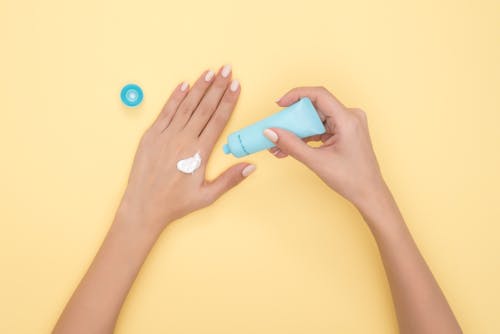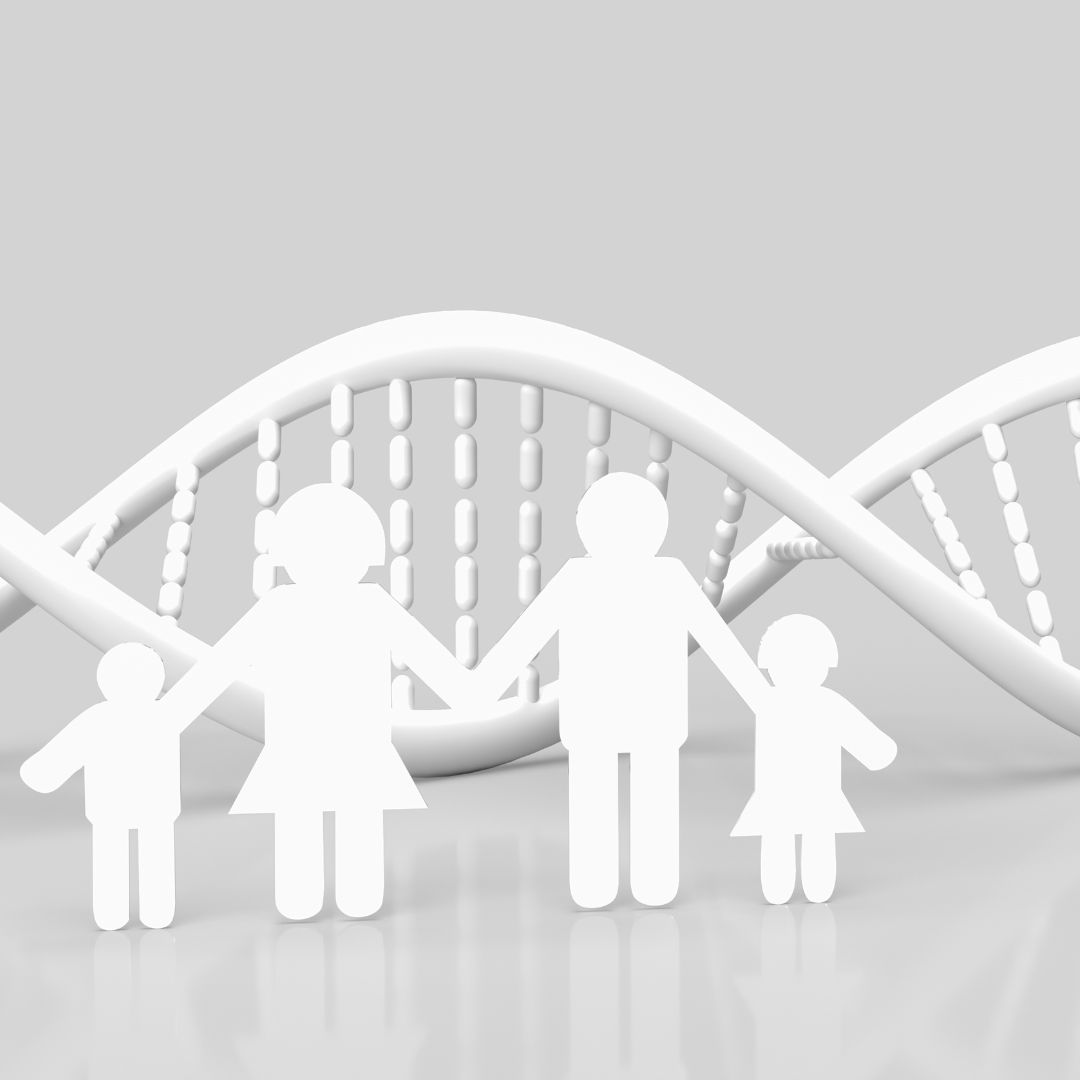
Living with eczema, a genetic skin condition is often very uncomfortable. Do you have blotches of red on your skin that feel unbearably itchy and flaky? If this uncomfortable sensation won’t let up and leave you alone, you could have eczema. In its most common form, eczema is referred to as atopic dermatitis. Technically, however, eczema is the term for a group of skin conditions that causes your skin to be inflamed, red, cracked, and super itchy.
The severity of this disease can be mild, allowing you to live normally with few complications despite living with eczema. However, extreme eczema cases can seriously conflict with your daily routine and affect your self-esteem and mental health. This is especially true if the lesions appear on your face. Living with eczema on your face can be very distressing, which is why finding coping mechanisms that work for you is crucial. Though the red patches of eczema typically appear on the body’s exterior, some eczema cases develop on the face and even develop inside the eyelids. This can be extremely painful and uncomfortable. Worst of all, it can lead to further health complications.
Other types of eczema include seborrheic dermatitis, contact dermatitis, and nummular eczema. This is very common because studies show that 15 to 20% of children and 3 to 4% of the adult population worldwide develop eczema. Typically, 80% of these children will recover within 10 years of the eczema onset. Meanwhile, it is usually the adults who experience the more severe forms of eczema.
Thankfully, if you suffer from this skin condition, you can manage and treat it with the guidance of a dermatologist or skin specialist. If you or your loved ones are diagnosed with eczema, knowing more about the disease can help you cope, control, and manage your condition more effectively.
Below is a guide on living with eczema, followed by some tips for coping with eczema:
Living With Eczema: Should I Worry That I’m Contagious?
Contrary to what most people think when they see rough skin patches, eczema is not contagious. You cannot catch it from a patient who suffers from these symptoms. Instead, studies suggest that both your genetics and environmental factors can trigger a skin reaction.
If your parents or other relatives have eczema, chances are you are at risk of developing it as well. You’re also at a higher risk if you have a family history of hay fever, asthma, and sensitivity to allergens. In the same token, environmental factors that stimulate its onset can include the following:
- Your diet because it could be ladened with allergens
- Exposure to stress
- Tobacco smoke exposure
- Harsh soaps and other cosmetics
- Fabrics that are irritants such as wool
- Low humidity in the air, causing dry and itchy skin
- Extreme heat as it makes the itchiness worse
When you have eczema, your immune system overreacts to allergens or irritants, resulting in inflamed skin. Allergens like pollen, nuts, dust mites, or pet hair can trigger an allergic reaction, manifesting on your skin. Therefore, it is important to get the right treatment from your doctor to alleviate discomfort. Stay away from stressors, too, as they can significantly worsen your symptoms.

What Are the Signs of Eczema?
There are various ways living with eczema affects people. Signs and symptoms of eczema could vary depending on the type of eczema you have. One of the first signs is itchiness, ranging from mild to severe. In some cases, the itchy feeling is excruciatingly intense, coupled with rapid skin inflammation. Unfortunately, the more you scratch, the itchier it becomes, making it a vicious cycle. Other symptoms are:
- Red skin
- Inflamed skin
- Darker patches
- Sensitive skin
- Super dry skin
- Leathery or rough skin texture
- Crusting on skin
- Fluid secretions
- Skin swelling
You don’t have to experience all the symptoms. Your doctor may diagnose you with eczema even if you manifest just one or two signs. In mild cases, you experience the symptoms because of an environmental trigger; then, it disappears after some time. If you feel concerned, speak with your doctor. The clinic may take a skin sample to verify the type of eczema and ascertain it is not a fungal infection or other skin condition.
Is it Eczema or Psoriasis?
Many people find it difficult to tell the difference between eczema and psoriasis because of similar symptoms. However, both eczema and psoriasis are chronic autoimmune diseases with no cure. You can only manage the symptoms, but the skin will flare up from time to time because of triggers.
Your dermatologist is the only one who can make the final call between the two. However, you may also be able to tell them apart by taking note of the following:
Different Feeling
Both skin issues feel different. Eczema causes an intense itch, forcing you to scratch the skin and making it bleed. Meanwhile, psoriasis could also be itchy but is compounded by a burning or stinging sensation.
Different Appearance
Eczema results in red and inflamed skin with a rough and leathery texture. It can also crust, swell, and ooze with fluids. Similarly, psoriasis causes red patches. The primary difference is these patches are super scaly with a silvery tinge. Upon close inspection, you will notice that the skin is raised. The reason for this is the areas with lesions are thicker. As a result, they are more inflamed than those with eczema.
Different Areas
Eczema typically appears in the bend like the inner elbow or behind the knees. However, you can also have it on the neck, ankles, or wrists. This skin condition also commonly affects babies in their chin, cheeks, scalp, and chest. In the meantime, psoriasis shows up in all those places, too. But instead of behind the knees or inner elbows, they show up on the inverse side of the joints instead. Lesions also appear in the palms, soles of feet, mouth, ears, eyelids, groin area, and finger or toenails.
Different Disease Onset
Eczema usually shows up in babies and young kids. Thankfully, the skin improves when they grow. Onset is less common in adults, but it can still happen. And this is usually due to a condition like thyroid disease, stress, or other hormonal imbalances. On the other hand, psoriasis often shows up between ages 15 to 35 years old. It is very rare for babies to manifest psoriasis.
How to Cope While Living With Eczema
Though eczema has no cure, there are many ways to treat it to ensure you live a relatively normal life with few complications. Though you cannot control your genes or predisposition to skin conditions such as eczema, you have influence over other factors like your diet, skincare products, and stress levels. Take a look at them below:
Prescription Medications
For severe cases, the dermatologist will prescribe prescription medication like triamcinolone steroid cream, steroid pills, or immuno-therapy injections. However, this comes with risks like high blood pressure, weight gain, or extreme thinning of the skin. So make sure you follow your doctor’s instructions for proper dosing and application.

Light Therapy
Some doctors also suggest phototherapy clinic treatments. They use a special lamp that mimics the sun’s UV rays. This light therapy will suppress the overactive skin immune system cells that cause redness and inflammation. Don’t forget to stay vigilant by wearing sunscreen to avoid further complications.
Modified Home Habits
On top of these professional treatments, you must also change your lifestyle and incorporate new routines. The following are the most common and helpful habits to combat your eczema:
- Use a humidifier to moisten the air since dry air will make your skin even more dry.
- Keep the ambient temperature at a moderate level.
- Pay attention to the food you eat and avoid triggers.
- Moisturize your skin with special creams and ointments fortified with ceramides (they bond moisture and boost your skin barrier to prevent water loss)
- Making it a point to moisturize several times in the day.
- Never use hot water as the heat will exacerbate swelling and cause more dryness.
- Apply OTC cortisone cream and follow the instructions to minimize skin swelling.
- Take OTC antihistamine or anti-allergy pills to combat severe itchiness.
- Use mild soaps, shampoos, and other products free from dyes, alcohol, perfumes, and other harmful additives.
- Invest in sensitive skin products that are fragrance-free, non-comedogenic, and hypoallergenic.
- Pay attention to laundry soap and fabric softeners as well.
Counseling
Consider seeing a therapist or counsellor if your skin issues cause emotional duress and mental health problems. It is natural to feel depressed when your skin doesn’t look its best or feels very uncomfortable. You may feel your self-confidence wavering, especially when others are afraid to go near you because they mistakenly believe you’re contagious. Speaking to a professional will help you unburden your negative emotions. If you keep this bottled up, it may cause even more stress in your life which in turn will exacerbate your eczema.
Natural Remedies
There happen to be many natural remedies to soothe your eczema, such as directly applying the gel from the aloe vera plant, moisturizing with coconut oil, or taking a calming oatmeal bath. Your best recourse is to always seek professional medical advice from a board-certified dermatologist, but it doesn’t hurt to also try these perfectly safe natural remedies.
A CircleDNA skin profile report will reveal your genetic predisposition for certain skin conditions, as well as your genetic risk of various other health conditions. This helps you understand your body better, giving you an advantage when it comes to preparing for and taking care of your health problems.







This Post Has One Comment
Comments are closed.